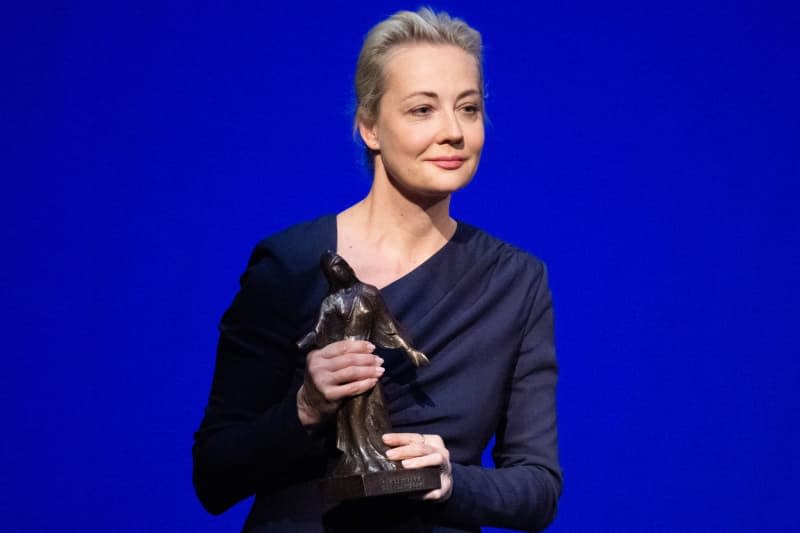Alexei Navalny to receive Dresden Peace Prize posthumously

- Oops!Something went wrong.Please try again later.
- Oops!Something went wrong.Please try again later.
- Oops!Something went wrong.Please try again later.
The well-known Russian opposition figure Alexei Navalny is to be posthumously awarded the first Dresden International Peace Prize on Sunday.
His widow Yulia Navalnaya will receive the award, which is endowed with €10,000 ($10,774), at the eastern German city's Schauspielhaus theatre, the organizers said.
Former German president Joachim Gauck is expected to deliver the laudatory speech.
A requiem by Russian composer Sergei Nevsky for Navalny is also expected to be premiered.
The Kremlin critic and prominent opponent of President Vladimir Putin died under unexplained circumstances in a Siberian prison camp on February 16.
Since 2010, the Friends of Dresden have awarded the Dresden Prize on the anniversary of the city's destruction in World War II in February to individuals who have made a special contribution to peace and international understanding.
In 2024, a new initiative took over the organization together with the previous sponsor, the Klaus Tschira Foundation, based in the south-western city of Heidelberg. The Dresden Prize then became the Dresden Peace Prize.
Past recipients of the Dresden Prize include former Soviet president Mikhail Gorbachev, pianist and conductor Daniel Barenboim, war photographer James Nachtwey and architect Daniel Libeskind.

